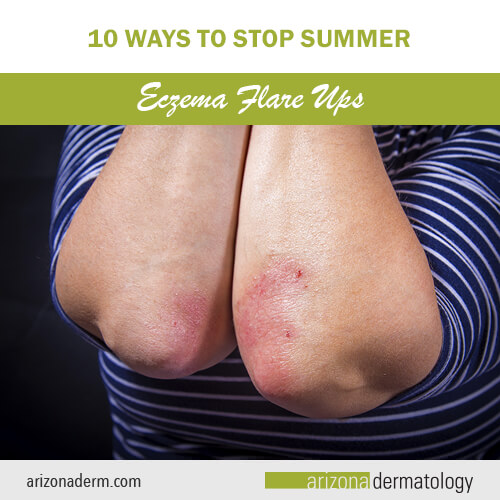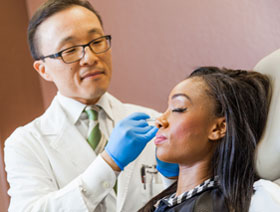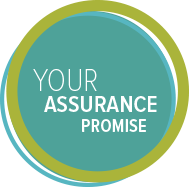 Hold the boogie boards and the flip flops! You may already know this all too well, but eczema tends to get worse in the summer. While the dry, cold winter air is a well-known eczema trigger, the heat, sweat and swimming associated with summer can bring on flare ups as well. In fact, many parents of children with difficult-to-treat atopic dermatitis (another name for eczema) report summertime flare ups.
Hold the boogie boards and the flip flops! You may already know this all too well, but eczema tends to get worse in the summer. While the dry, cold winter air is a well-known eczema trigger, the heat, sweat and swimming associated with summer can bring on flare ups as well. In fact, many parents of children with difficult-to-treat atopic dermatitis (another name for eczema) report summertime flare ups.
Luckily, there are things you can do to reduce eczema symptoms in the summer. Here are 10 tips from our dermatologists to avoid summertime eczema flare ups:
Stay cool. When temperatures are hot, blood vessels dilate in an attempt to cool you off, and this can trigger inflammatory cells. Stick to the shade when outdoors or stay in air conditioned spaces when temperatures are at their highest. Wearing loose-fitting clothing can also help. Some people with eczema swear by those hand-held fans filled with ice water. The air comes out moist and cold, helping to cool your skin rapidly in hot weather.
Drink more water. Staying well hydrated helps keep your body at a normal temperature so your skin doesn’t react to the excessive heat. Water needs vary from person to person, but most active adults require three to four liters of water per day (that’s between 12 and 17 eight ounce glasses of water). Johns Hopkins recommends that children drink their age in eight-ounce glasses of water. For both adults and kids, this probably means drinking even when you aren’t thirsty. Another way to gauge your hydration is to check urine output. Urine should be the color of lemonade; if it’s any darker, you need to drink more water. (Bonus tip: you can also hydrate with food.)
Rinse off sweat. Sweating is the body’s natural way of cooling you off, but sweat leaves behind trace elements that can irritate eczema. Moisture often builds up inside the elbows, behind the knees and around the neck, making these areas hot spots for flare-ups. If you’re involved in a sweaty activity, rinse off right afterward and change into fresh clothes.
Shower after swimming in chlorine. Some people with eczema tolerate chlorinated swimming pools well, but for others chlorine is an irritant. If chlorine water bothers your skin, a quick shower after swimming in a pool is a good idea. Keep in mind that cleansing skin also removes natural oils, so it is important to moisturize right afterwards to help replace that natural barrier. Apply a moisturizer with ceramides over all areas of skin directly after showering, when skin is still damp.
Take a beach vacation. The high concentrations of minerals in seawater, especially magnesium, may be beneficial to people with eczema. The sodium and iodine also present in ocean water have healing properties for skin. That said, saltwater can be uncomfortable and downright painful on inflamed skin, especially in young children–something to consider before booking a beach vacation. If you do go, rinse off excess salt (which can have a drying effect on skin) after swimming in the ocean and moisturize well.
Use a physical (not chemical) sunscreen. People with eczema are more susceptible to sun damage and should always use sunscreen when outdoors. That said, many sunscreen ingredients can exacerbate eczema symptoms. Most eczema sufferers do better with physical sunscreens (ones that use minerals like zinc oxide or titanium oxide to block UV rays) rather than chemical sunscreens (ones that use chemicals to absorb them). The National Eczema Association has a list of approved sunscreens you can try. Always test a new sunscreen by applying a pea-sized amount to the inside of the elbow and leaving it on for 24-48 hours, checking for skin reactions.
Treat allergies. Eczema will often flare when environmental allergens are also on the attack. Are you seeing hives, sneezing, runny nose, itching, or swelling? If so, it’s time to talk to an Arizona Dermatology doctor about allergy medications. We can also use allergy testing to determine allergic triggers and help you develop a plan to avoid or minimize exposure to those triggers.
Use an air purifier. One way to help reduce the number of airborne allergens is to use an air purifier in the room where you sleep. Breathing in dust and pollen can trigger allergic skin reactions and encourage eczema flare ups. Choose a purifier that uses HEPA filters, which are designed to remove at least 99.97% of airborne particles at least .3 microns in size. Dusting the house more often can help, too.
Sleep on clean, cotton sheets. If you are traveling, consider bringing your own sheets and towels to the hotel. Different detergents and fabrics can irritate sensitive skin and trigger outbreaks. Opt for 100% cotton sheets and hypoallergenic detergents. Also, if you are using thick moisturizers to treat eczema at night, sheets can quickly become soiled. Wash and dry them often, or keep an extra set handy.
Try phototherapy. Phototherapy (also called light therapy) for eczema is a simple, non-invasive treatment that reduces itching and inflammation by exposing skin to specific forms of UV light. Phototherapy boosts the body’s ability to fight off bacteria and reduces the risk of infection that comes from scratching. If you would like to learn more about phototherapy for eczema, one of our dermatologists can walk you through it and answer any questions.
Summer can still be fun, even if you have eczema. If you need help managing your or your child’s eczema, let us help! Contact us today.


